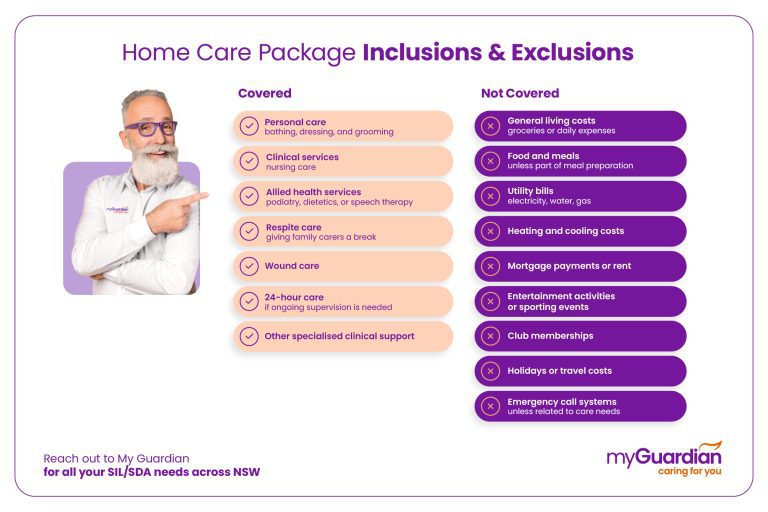Comprehensive guide to working with home care providers under the NDIS
Comprehensive guide to working with home care providers under the NDIS
Blog Article
Everything About Home Treatment Providers for Individuals With Disabilities: NDIS Registered Assistance
Home treatment solutions under the NDIS play a critical function in supporting people with impairments. These services are created to boost everyday living through customized help, ranging from personal like flexibility assistance. Understanding exactly how to browse these alternatives can be intricate. This overview explores the various elements of NDIS home care, from available solutions to the option of suppliers, highlighting crucial considerations for those seeking assistance. The journey toward encouraged care begins below.
Comprehending the NDIS and Its Objective
The National Handicap Insurance Policy System (NDIS) works as a transformative framework developed to provide support and services for people with handicaps. Developed to improve the high quality of life and guarantee equitable access to crucial sources, the NDIS encourages participants by using personalized strategies customized to their distinct needs. It intends to foster independence, enabling people to pursue their individual objectives and aspirations.Through an organized technique, the NDIS assigns funding for different supports, including education, work support, and community involvement. This all-encompassing scheme not just concentrates on instant care yet also emphasizes lasting developing results. By advertising option and control, the NDIS urges individuals to select their favored provider, guaranteeing that treatment aligns with their values and preferences. Eventually, the NDIS represents a significant dedication to boosting the lives of people with handicaps, fostering inclusivity, and developing an extra supportive society.
Sorts Of Home Treatment Provider Available
Numerous kinds of home care services satisfy people with disabilities, primarily concentrating on personal care support and break care choices. Individual treatment support supplies essential support with everyday activities, while respite care offers short-term relief for main caregivers. Recognizing these solutions is crucial for making certain the health of both people with handicaps and their family members.
Personal Treatment Help
While steering day-to-day live can provide obstacles for people with handicaps, personal care support uses vital support customized to their special requirements. This kind of home treatment solution includes a range of tasks created to promote freedom and boost top quality of life. Individual treatment assistants assist with day-to-day tasks such as showering, dressing, brushing, and toileting, making certain people keep personal health and convenience. They may also aid with dish preparation, medication administration, and movement assistance. By giving customized care, these specialists encourage individuals to involve more fully in their day-to-day routines and social tasks. On the whole, individual care assistance plays a considerable function in cultivating dignity and autonomy for those with handicaps, allowing them to grow in their home atmosphere.

Reprieve Treatment Options
Reprieve treatment acts as a vital source for family members and caretakers of people with disabilities, giving temporary relief from the demands of daily caregiving. This kind of service can take different forms, including in-home reprieve treatment, where experienced experts go to the home to aid with treatment tasks. Alternatively, families might choose facility-based reprieve care, where individuals obtain care in a customized setting, enabling caregivers to relax. Additionally, some companies offer emergency respite solutions for unanticipated conditions. These choices not just help reduce caretaker anxiety but likewise advertise the wellness of people with handicaps by using them brand-new experiences and social interaction. Overall, reprieve treatment plays a vital role in sustaining both caretakers and those they take care of.

Exactly How to Access NDIS Home Treatment Solutions
Accessing NDIS home care services entails recognizing the eligibility requirements stated by the National Impairment Insurance Scheme. Individuals need to navigate a structured application procedure to secure the needed support tailored to their demands. This section will make clear both the eligibility requirements and the steps entailed in applying for solutions.
Eligibility Standards Clarified
To certify for NDIS home treatment solutions, people have to fulfill specific eligibility requirements that assess their demands and conditions. Initially, applicants have to be aged in between 7 and 65 years and have a considerable and irreversible disability that impacts their ability to execute day-to-day tasks. In addition, they have to be an Australian person, a long-term local, or hold a Protected Special Category Visa. The NDIS requires proof of the handicap, generally via clinical evaluations or records. Individuals should show that they require assistance to take part in economic and social life. These criteria assure that services are guided in the direction of those who truly require aid, promoting independence and improved high quality of life for individuals with impairments.
Application Process Steps
Can I Pick My Very Own Assistance Employees Through NDIS?
The specific made inquiries whether they could pick their very own support employees under the NDIS structure. Generally, individuals have the versatility to choose support employees, promoting individualized care that aligns with their certain requirements and preferences.
What Takes place if My Needs Change After Obtaining Support?
They must interact these adjustments to their service supplier if an individual's demands change after getting support. Changes can be made to the treatment plan, guaranteeing that the assistance remains appropriate and effective for their situations.

Are There Restricts on The Amount Of Hours of Treatment I Can Get?
The individual inquired about potential limitations on the number of treatment hours obtained. Normally, such restrictions may exist based on details plans or funding arrangements, emphasizing the significance of assessing standards and arrangements routinely.
Can I Use NDIS Financing for Home Alterations?
The question of making use of funding for home adjustments occurs frequently. Normally, people might utilize NDIS financing for essential modifications to their homes, making certain availability and safety and security, section upon meeting particular qualification requirements and guidelines.
How Do I Manage Grievances Concerning My Home Care Solutions?
To deal with complaints regarding home treatment services, individuals ought to initially record their worries. They can communicate directly with their solution company, looking for resolution, or escalate the concern to appropriate oversight bodies if required. Home care services under the NDIS play a pivotal role in sustaining people with handicaps. read this Different kinds of home care solutions cater to individuals with impairments, largely concentrating on personal treatment aid and respite treatment alternatives. home care package providers. Personal care help gives essential support with everyday activities, while respite treatment provides momentary relief for main caretakers. Families might opt for facility-based respite treatment, where individuals obtain treatment in a specific setting, allowing caretakers to take a break. Just how can family members efficiently take care of the economic facets of home care solutions for people with look at here impairments?
Report this page